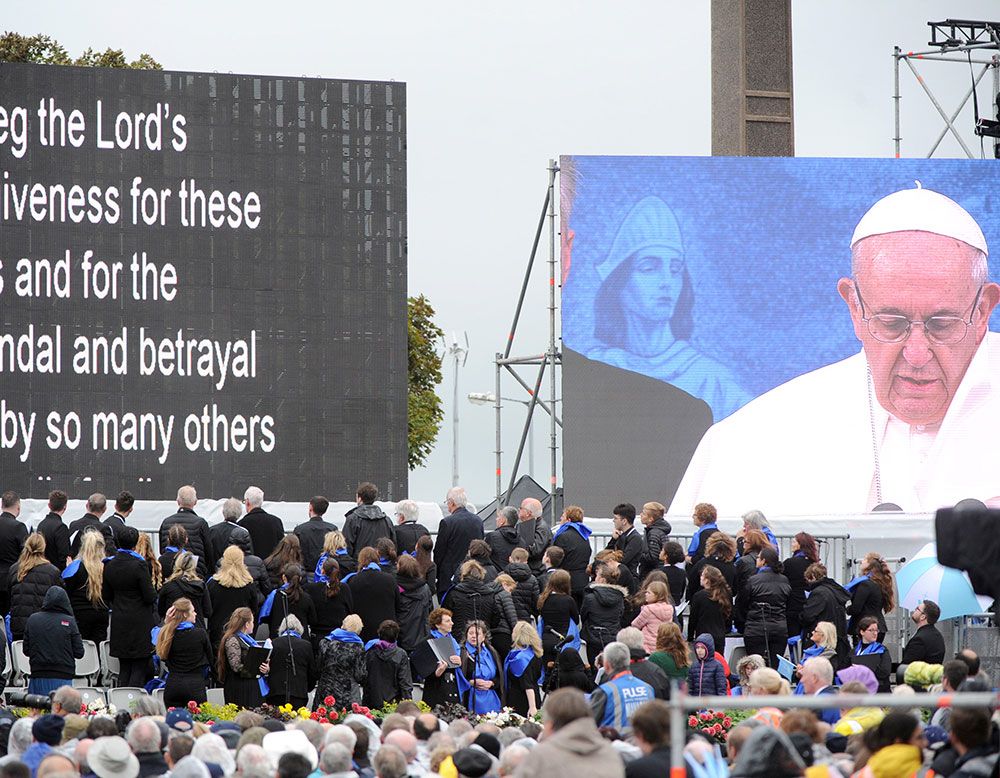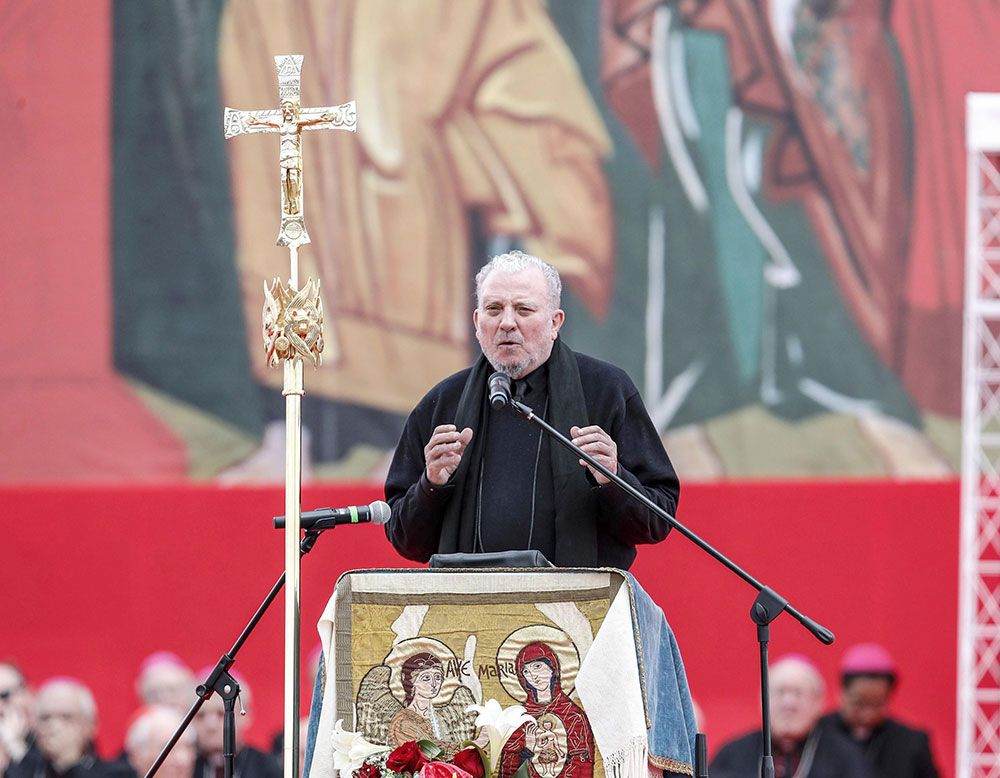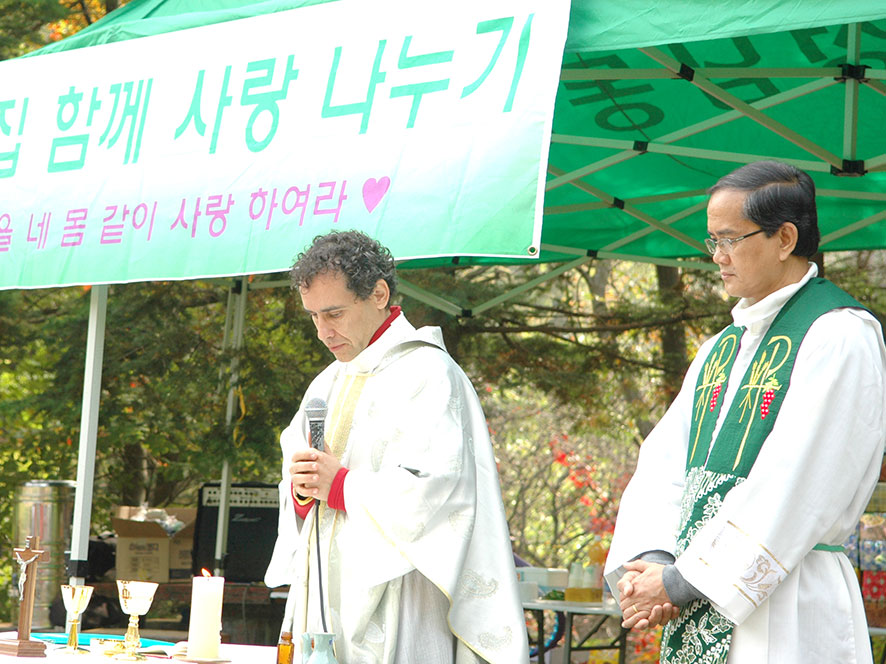The Word of God is alive, effective and challenging. This means that when we listen to the Word, we listen to God himself; when we welcome the Word in faith and availability, the Word generates in us the effects wanted by God for our own benefit; and when we are willing to really be transformed by God, the Word presents great challenges and gives us inner, deep peace for our hearts and for our whole being.
All this is particularly true for the Word with which Jesus proclaims the Beatitudes. Because of this, Mahatma Gandhi, a man who did not belong to any Christian denomination, was attracted by this great program of life presented by Jesus. There is a striking episode in his life.
Mahatma Gandhi
During the struggle for independence in India, it happened one day when he arrived at a railway station in the south where thousands of people were awaiting him. After descending from the train, he stood silent for quite a while. When urged to say something, he took from the folds of his garments a little booklet, the New Testament, and from the Gospel of Matthew he read the eight Beatitudes. Then he waved at the people and said simply: “That is all I have to say; go home and ponder it.”
What a great witness and what a great mystery if we think that in South Africa Gandhi had been rejected by a Christian community while he was feeling the need of joining that same community in praising God. He had been walking along a country road when he saw a little church not far away from where he was. He could hear pleasant voices singing and praising God. He walked towards the church wanting to join that Christian community. At the entrance two ushers stopped him saying he could not enter because that church was only for white people. Wow! Their attitude was not only against the Beatitudes but also against the most elementary of good manners. How sad! With a deep sense of sadness Gandhi said to himself: “I love the Gospel but I will never join a Christian community!”
‘Be-Attitudes’
The Beatitudes form the core of the Sermon of the Mount through which Jesus sketched the new spirit of the Kingdom of God, giving us a compilation of teachings, a kind of inaugural address at the beginning of his ministry (Matthew 5:3-12).
The Missionary Church, in celebrating life according to the style inaugurated by Christ Jesus, is called to absorb the spirit of the Beatitudes in order to make them flesh in her. Only in this way will the Missionary Church attract people to Christ, while proclaiming the Beatitudes with trust in their power of transformation.
In this article we consider some of the beautiful aspects of the Beatitudes:
The Beatitudes are the most beautiful and accurate inner portrait of Christ Jesus. In Jesus we see the Beatitudes made flesh in an eminent way. How beautiful! By dwelling upon the Beatitudes in prayer and meditation, we contemplate our Lord Jesus as the poor in spirit, the gentle one, the one who mourns, the one who hungers and thirsts for what is right, the merciful one, the pure in heart, the peace maker, and the persecuted one. In this way we become ‘Christified’ people;
The Beatitudes are ‘Be-Attitudes,’ attitudes that enable us to be true followers of Christ Jesus. In this sense the Beatitudes are considered as the handbook of Christian life. (We will develop this point when we will consider each beatitude in detail);
The Beatitudes are the great realization of God’s prophecies. In the Old Testament God promised that He was going to give a full answer to the quest for blessedness present in His people. The Beatitudes point out this blessedness which has a deeper meaning than happiness. In fact in the minds of many people happiness is linked to good and pleasant happenings; while blessedness is linked to the presence of God in one’s life. And God’s presence generates blessedness not in spite of everything, but with everything that happens, even in times of persecution, mourning and all kinds of setbacks.




























